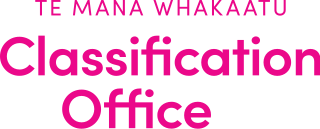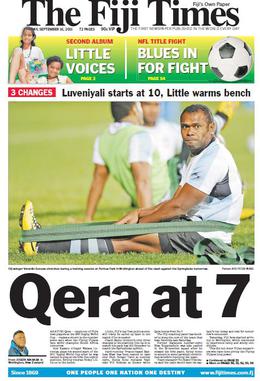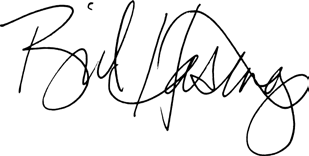
Indecent exposure is the deliberate public exposure by a person of a portion of their body in a manner contrary to local standards of appropriate behavior. Laws and social attitudes regarding indecent exposure vary significantly in different countries. It ranges from outright prohibition of the exposure of any body parts other than the hands or face to prohibition of exposure of certain body parts, such as the genital area, buttocks or breasts.
Although Australia is considered to have, in general, both freedom of speech and a free and independent media, certain subject-matter is subject to various forms of government censorship. These include matters of national security, judicial non-publication or suppression orders, defamation law, the federal Racial Discrimination Act 1975 (Cth), film and literature classification, and advertising restrictions.

The Office of Film and Literature Classification, branded as the Classification Office, is an independent Crown entity established under Films, Videos, and Publications Classification Act 1993 responsible for censorship and classification of publications in New Zealand. A "publication" is defined broadly to be anything that shows an image, representation, sign, statement, or word. This includes films, video games, books, magazines, CDs, T-shirts, street signs, jigsaw puzzles, drink cans, and slogans on campervans. The Chief Censor, Caroline Flora, is the chair of the Office.
In Ireland, the state retains laws that allow for censorship, including specific laws covering films, advertisements, newspapers and magazines, as well as terrorism and pornography, among others. In the early years of the state, censorship was more widely enforced, particularly in areas that were perceived to be in contradiction of Roman Catholic dogma, including abortion, sexuality and homosexuality. The church had banned many books and theories for centuries, listed in the Index Librorum Prohibitorum.

The Mazengarb Report of 1954, formally titled the Report of the Special Committee on Moral Delinquency in Children and Adolescents, resulted from a New Zealand ministerial inquiry. The report gained its name from the inquiry chairman, Queen's Counsel Ossie Mazengarb. The Report, its origins and its significance still remain key items in the mythology of 1950s New Zealand social history. This is not to deny the importance of the Report; however, its real significance has been obscured by inaccurate accounts in popular histories and newspaper and magazine articles. It is frequently cited as an example case of moral panic in New Zealand.

The Fiji Times is a daily English-language newspaper published in Suva, Fiji. Established in Levuka on 4 September 1869 by George Littleton Griffiths, it is Fiji's oldest newspaper still operating.

William Kenneth Hastings was New Zealand's tenth Chief Censor. He held the position from October 1999 to July 2010. He was Chairperson of the Immigration and Protection Tribunal from July 2010 until February 2013, and is currently a District Court Judge. He was the chair of the Broadcasting Standards Authority from October 2018 until August 2021. He was sworn in as the tenth Judge of the Court Martial of New Zealand on 20 July 2021. On 9 August 2021, Hastings was sworn in as Chief Justice of the Republic of Kiribati.

William Jolliffe was New Zealand's first Chief Censor of Films.
Clothing laws vary considerably around the world. In most countries, there are no laws which prescribe what clothing is required to be worn. However, the community standards of clothing are set indirectly by way of prosecution of those who wear something that is not socially approved. Those people who wear insufficient clothing can be prosecuted in many countries under various offences termed indecent exposure, public indecency, nudity or other descriptions. Generally, these offences do not themselves define what is and what is not acceptable clothing to constitute the offence, and leave it to a judge to determine in each case.
The Censorship of Publications Board is an independent board established by the Censorship of Publications Act, 1929 to examine books and periodicals that are for sale in the Republic of Ireland. It is governed by the Censorship of Publications Acts of 1929, 1946 and 1967. The Board has the authority to prohibit any book or periodical that they find to be obscene. This makes it illegal to buy, sell or distribute that publication in the Republic of Ireland. The Board prohibited a large number of publications in the past, including books by respected authors. However, since the 1990s it does not prohibit publications very often.
Censorship in New Zealand has been present since around 1850 and is currently managed by the Classification Office under the Films, Videos, and Publications Classification Act 1993.

The Films, Videos, and Publications Classification Act 1993 is an Act of Parliament in New Zealand.
Internet censorship in New Zealand refers to the Government of New Zealand's system for filtering website traffic to prevent Internet users from accessing certain selected sites and material. While there are many types of objectionable content under New Zealand law, the filter specifically targets content depicting the sexual abuse or exploitation of children and young persons. The Department of Internal Affairs runs the filtering system, dubbed the Digital Child Exploitation Filtering System (DCEFS). It is voluntary for Internet Service Providers (ISPs) to join.
Upsurge is a novel by Australian writer J. M. Harcourt. Set in Perth, Western Australia, during the Great Depression, it was the first novel to be banned by the then Commonwealth Book Censorship Board and the first to be prosecuted by police in Australia.
Book censorship was carried out in several instances in Ireland between 1929 and 1998, with all remaining bans from that period having expired by 2010. However, the laws remained on the statute books and a book was banned again in 2016. Censorship was enacted by a 1929 act of the Irish Free State.

The Indecent Publications Act was a New Zealand Act of Parliament enacted in 1963.
The Indecent Publications Tribunal was a government censorship organisation that operated in New Zealand from 1964 until 1993. It was established under the Indecent Publications Act 1963 and consisted of five members, with one a High Court barrister or solicitor, and four other members with two having qualifications in the field of literature or education. John Robson, a senior public servant, was instrumental in having provisions for the Tribunal to be established under the Act.
Indecent Publications Act may refer to:

Not in Front of the Children: "Indecency," Censorship, and the Innocence of Youth is a non-fiction book by attorney and civil libertarian, Marjorie Heins about freedom of speech and the relationship between censorship and the "think of the children" argument. The book presents a chronological history of censorship from Ancient Greece, Ancient Rome and the Middle Ages to the present. It discusses notable censored works, including Ulysses by James Joyce, Lady Chatterley's Lover by D. H. Lawrence and the seven dirty words monologue by comedian George Carlin. Heins discusses censorship aimed at youth in the United States through legislation including the Children's Internet Protection Act and the Communications Decency Act.







